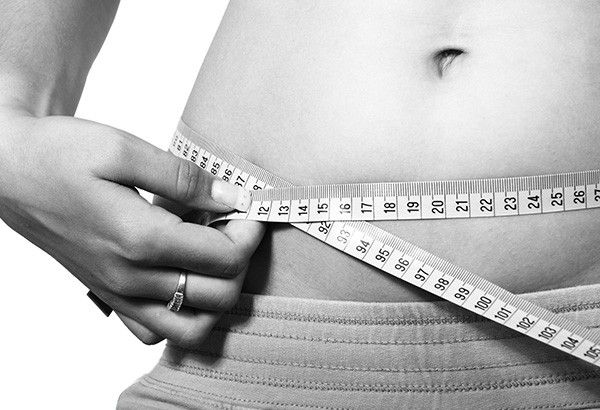Intermittent Fasting: Doctor explains science behind fad diet based on Holy Week tradition

MANILA, Philippines — It’s the hottest two words on every dieter’s lips these days — Intermittent Fasting (IF).
Celebrities are obsessed with it: in Hollywood, A-listers Jennifer Aniston, Halle Berry, Hugh Jackman, and Chris Pratt all swear by IF, while local showbiz hunk Carlos Agassi and actors Christopher Roxas (husband of Gladys Reyes) and Marco Alcaraz (Precious Lara Quigaman’s better half) have attributed their slimmer figures to it.
According to model and entrepreneur Nico Bolzico, husband of singer-actress Solenn Heussaff, IF works but it’s not for everyone.
“I had to do it, sometimes. Right now, I’m doing it actually. I do it (for) eight hours. The reason why I do it is because for some people it works, for some people, it doesn’t, so there’s no singular equation that applies to everyone,” Nico explained in an interview with Philstar.com during a G-Active event last year.
“Like me, when I work out in the morning, I need food right away, whereas Nico had to wait for lunch time before he can have his first meal. It’s not for everybody but whatever works for you,” added TV host Raymond Gutierrez during the same event.
But what exactly is IF? Will it get us all moody and “hangry” (that is, hungry and angry at the same time) the way other fad diets do? And more importantly, is it safe and sustainable?
Top hospital Makati Medical Center (MakatiMed), through its Department of Nutrition & Dietetics, gives us the skinny on the weight-loss trend that could help jump-start our dream to get leaner (and hopefully healthier) in 2020.
Not an eating pattern by definition
“An eating pattern is defined as a combination of different foods or food groups. As its name suggests, IF is more of alternating eating and abstaining from food. It is a way of eating that focuses more on WHEN than on WHAT you eat” explains Dr. Maricar Esculto.
Such a practice is not new. Various religions, including Catholicism and Islam, observe fasting at specific times of the year, and our prehistoric ancestors who hunted for their food did not eat until they caught their next meal.
“There are different ways to do IF,” added Dr. Esculto. “The most popular and simplest is 16/8 or fasting for 16 hours and eating within 8 hours. For example: you can eat from 1 pm to 9 pm then abstain from eating from 10 pm to 1 pm. In Eat-Stop-Eat, fasting lasts for 24 hours. In other words, one can skip dinner and abstain from eating until dinner the next day. In the 5:2 diet, you spend two days in a week eating no more than 500 calories a day.” Water, tea, and black coffee are allowed during the period of fasting.
The science (and sense) behind IF
“Eating only for a certain period naturally limits your caloric intake,” said Dr. Esculto. “It lowers the insulin level in the blood and if the person has no intake of food for a prolonged period of time, fat will be mobilized to supply the body’s energy needs.”
Dieters who think they can eat all they want during IF’s eating phase will be disappointed, said Dr. Esculto.
“It’s still all about eating sensibly, avoiding high-calorie foods, and practicing portion control. If you binge-eat after your fast, then you are sabotaging your weight-loss goals.”
It offers other things, too
Apart from the desired weight loss (talk show host Jimmy Kimmel shed 25 lbs. in 2015 via IF), the eating/fasting pattern has also been credited for reducing inflammation, decreasing Low-Density Lipoproteins (LDL) or “bad” cholesterol and triglycerides, and lowering the risk of cancer and heart disease. “IF has been credited for triggering the increase of the brain hormone BDNF (Brain-derived neurotrophic factor) and protecting individuals against Alzheimer’s disease, however, this was observed among animal models so far”, Dr. Esculto pointed out.
Not so fast…
While it sounds too good to be true, IF comes with a few caveats. According to Dr. Esculto, “Hunger is the chief complaint of those on intermittent fasting, especially if they’re just starting. People initially feel weak and not as mentally sharp, too.”
Experts have also discovered that depriving yourself of food for some time increases the body’s level of cortisol, otherwise known as the stress hormone.
Moreover, IF isn’t for everyone—particularly women who are pregnant, breastfeeding, or trying to conceive, and individuals with diabetes, low blood pressure, a heart condition, a history of eating disorders, and other pre-existing conditions.
“It is strongly recommended to consult with your physician before trying this way of eating” advised Dr. Esculto.
The verdict?
While IF has been used as a safe way to initiate weight loss or break a weight-loss plateau, doctors do not recommend it be practiced long-term.
“I would rather people develop a healthy attitude towards food and eating,” says Dr. Esculto. “Eat fresh fruits and vegetables and high-quality protein. Eliminate processed and junk foods. Exercise regularly.” — Video by Erwin Cagadas Jr.



















